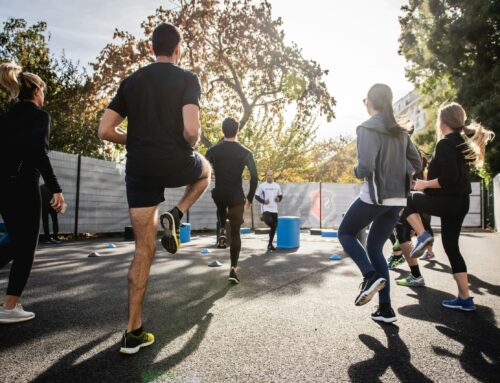Shoulder Impingement Pain
Summer is here (although it feels ironic to say that given the deluge yesterday and the week of rain we have forecast). Summer motivates many of us to get out playing cricket, tennis, stool ball (a Sussex speciality), athletics and golf. For those less athletically minded, many get more active with DIY and gardening throughout.
As is often the case with increased activity we can start to get more aches and pains. All the sports and activities mentioned earlier put us at increased risk of aches and pains, in particular shoulders can begin to suffer if not looked after properly.
The complex nature of the shoulder makes it vulnerable to various different pains and instabilities. Many of us have been diagnosed with a condition called sub- acromial impingement syndrome or shoulder impingement. It tends to cause pain down on the top and the side of your arm, pain lifting your arm overhead, pain at night and sometimes a feeling of weakness. This is specifically what a new review has looked at.
Research
A recent systematic review (a review of relevant studies) looking at shoulder surgery versus physiotherapy rehabilitation in patients with subacromial impingement, has shown that the long-term outcomes of physiotherapy rehab can be as beneficial as surgery if not slightly better! The key findings were:
- some patients will continue to experience minor pain regardless of whether they have surgery or physiotherapy.
- placebo surgery studies show us that there is no important benefit of having surgery, on pain or function.
Whilst nothing is clear cut and there are thoughts that if we better divide patients into different groups we may get different results, at the moment we have to work with what we do know. When our patients come in to see us, we do everything we can to successfully rehabilitate them without referring them onto a surgeon.
The key to success of any rehabilitation is a thorough and accurate assessment and diagnosis by an experienced physiotherapist. A good explanation is needed at the start of the process that it may take a good 4-6 months to see definitive benefits. Physiotherapy should involve manual techniques and most importantly a graded exercise regime which needs to be adapted and increased at appropriate times under the guidance of a skilled physiotherapist.
This should allow you to continue doing your activities whilst being rehabbed although we may need to modify techniques or teach appropriate strapping techniques.
The benefits of an appropriate physiotherapy regime for shoulder pain particularly impingement is no longer in question. This does not depend on your age or how active you are. Some people can have shoulder pain in simple tasks such as putting jumpers on or trying to wash their hair. Don’t continue to suffer the pain in silence.
Subacromial decompression surgery for adults with shoulder pain: a systematic review with meta analysis; Lahdeoja, T et al; British Journal of Sports Medicine, 15/1/19.
If you or anyone you know is suffering from shoulder pain and would like to have a physiotherapy assessment with the team at Dorking , Leatherhead or Crawley , contact us here.





